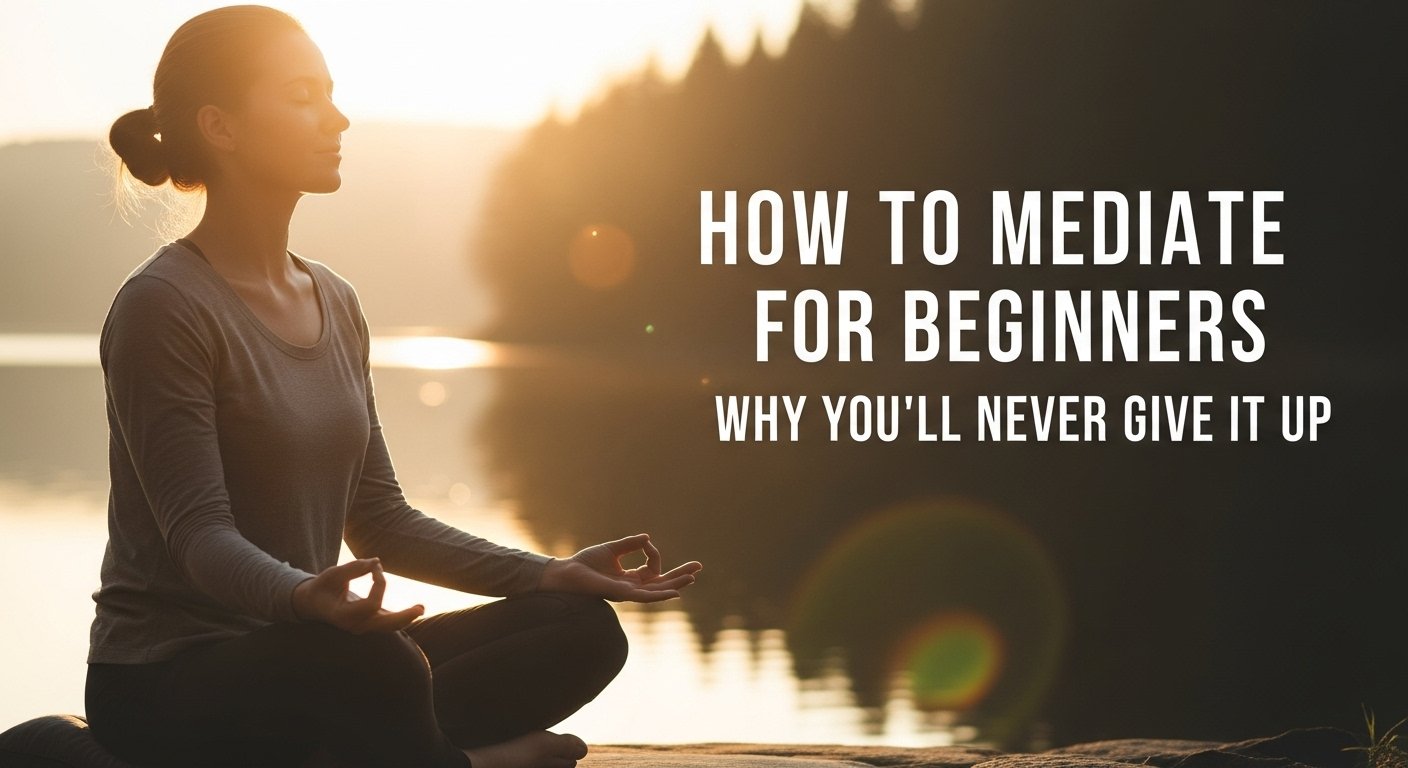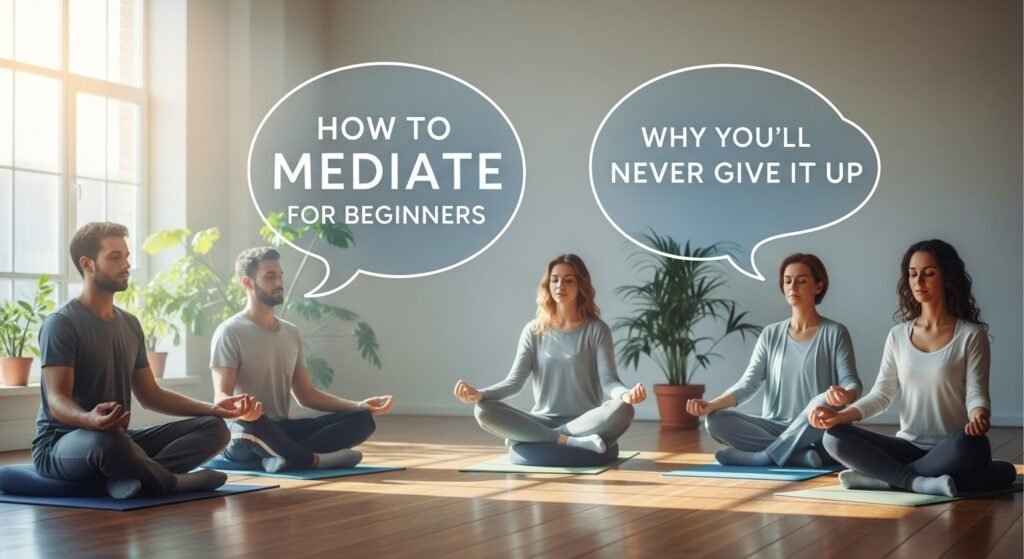
Meditation is an ancient practice that has found its place in the modern world. For beginners, it offers a gateway to mindfulness, reduced stress, and inner peace—benefits that can transform your life in ways you’d never expect. If you’ve been curious about meditation or feel that it could be impossible to commit to, this guide will walk you through everything you need to know. By the end, you’ll understand why so many people make meditation a lifelong habit.
What Is Meditation and Why Does It Matter?
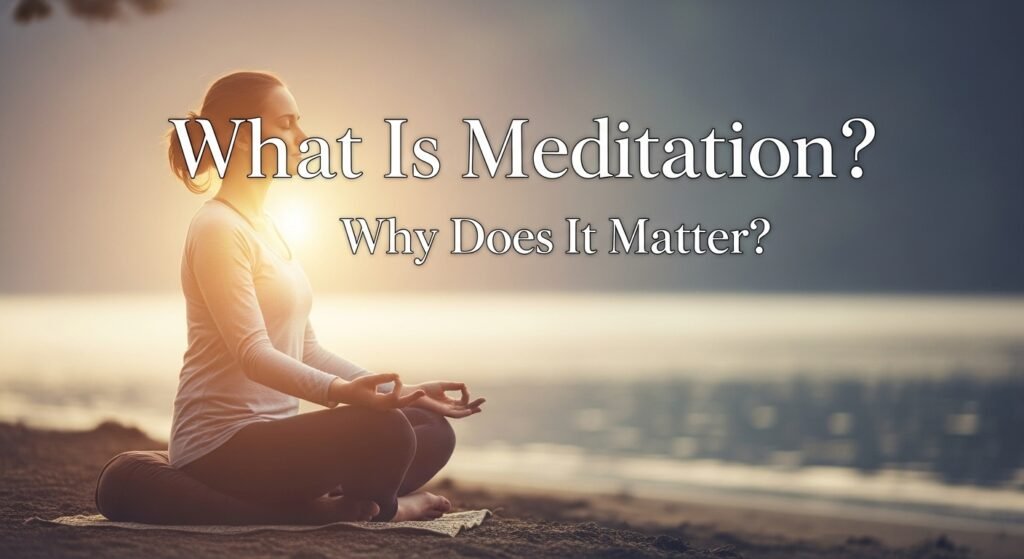
Meditation is a technique used to focus the mind, achieve relaxation, and foster a sense of awareness and clarity. While there are different approaches, the essence of meditation revolves around concentration and mindfulness. For beginners, the idea may seem daunting—sitting still with your thoughts! But understanding its purpose helps demystify the process.
Meditation matters because it offers tools to manage the chaos of daily life. From physical health benefits to mental clarity, meditation empowers you to live with intention. Many beginners who stick with it often report that it becomes a treasured part of their routine, offering a calm oasis in a busy schedule.
Benefits of Meditation
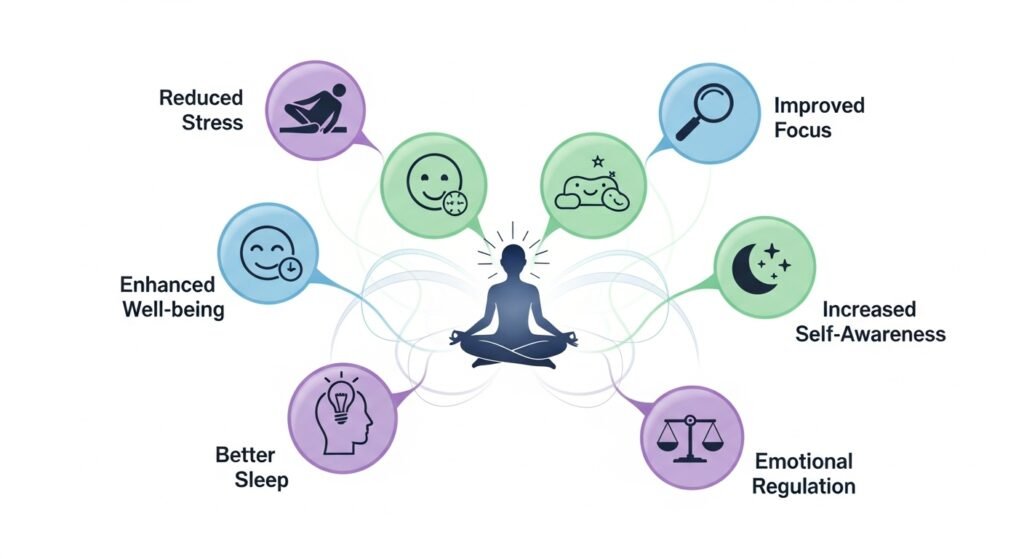
Meditation isn’t just a wellness trend—it’s backed by science and centuries of practice. Here’s how it can reshape your life:
1. Reduces Stress
Stress is a common issue in today’s world, but meditation has been shown to alleviate its effects. By focusing on breathing or a mantra, meditation lowers cortisol levels, decreasing the stress your body holds. Regular practice encourages a relaxed state, leaving you better equipped to handle challenges.
2. Improves Mental Clarity
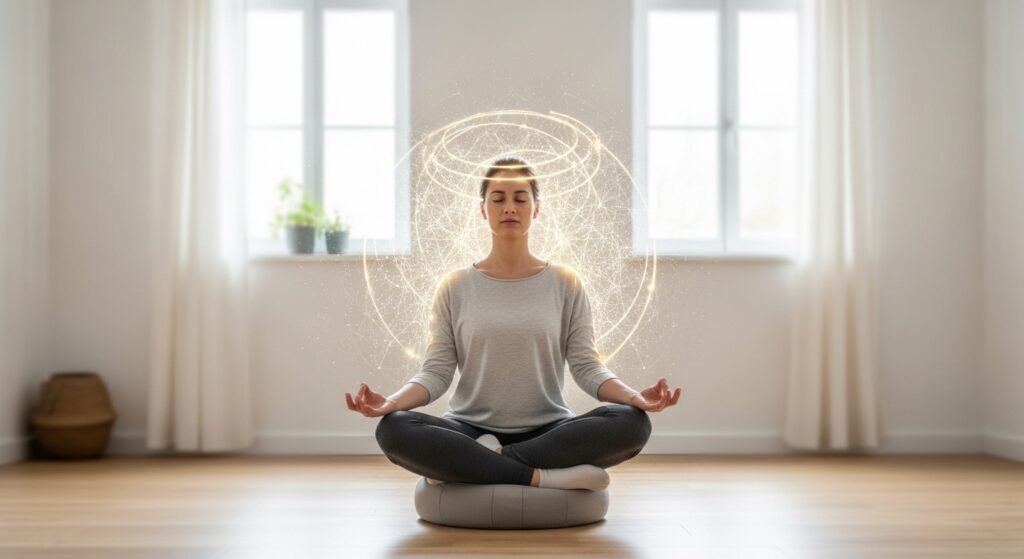
Meditation sharpens your focus and increases mental clarity. By training your mind to return to the present moment, you develop the ability to concentrate on tasks and think more clearly. This is especially beneficial for beginners struggling with restlessness or overthinking.
3. Enhances Emotional Well-Being
With mindfulness meditation, you learn to observe your emotions non-judgmentally. This practice can lead to reduced symptoms of depression and anxiety over time. It also helps you build emotional resilience, making it easier to bounce back from difficult situations.
4. Encourages Physical Relaxation

Meditation isn’t just about the mind—it relaxes the body, too. By slowing your heart rate and promoting deeper breathing, meditation reduces tension in your muscles and allows your body to reset. Many beginners find that this physical relaxation improves their sleep quality.
5. Boosts Self-Awareness
One of meditation’s core benefits is developing a deeper understanding of yourself. Self-awareness fosters better relationships and helps you make decisions aligned with your values. Beginners often describe it as meeting themselves for the first time.
6. Builds Inner Peace
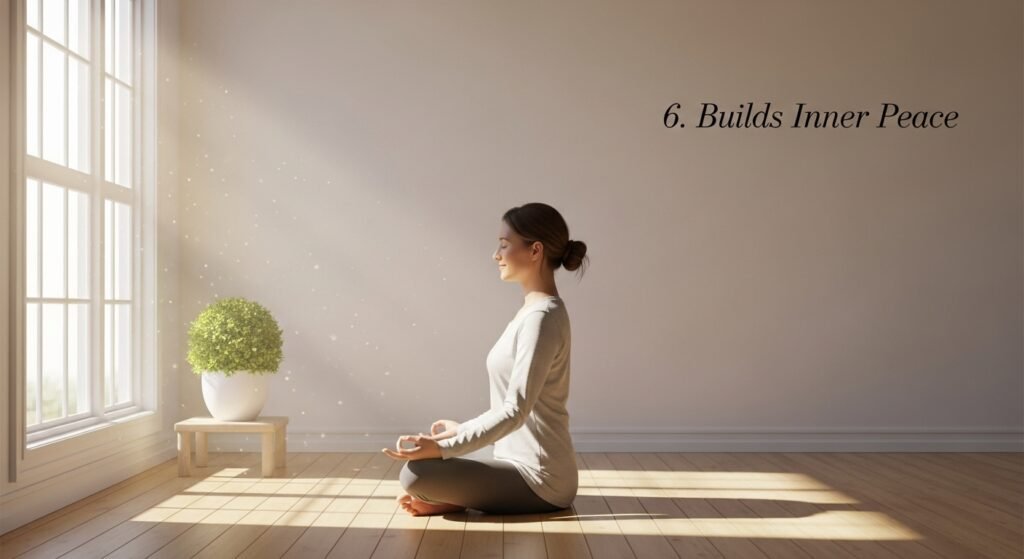
At its core, meditation is about finding peace amidst life’s noise. It gives you a way to step back and gain perspective, making it easier to respond to challenges with calmness rather than frustration.
How to Meditate for Beginners
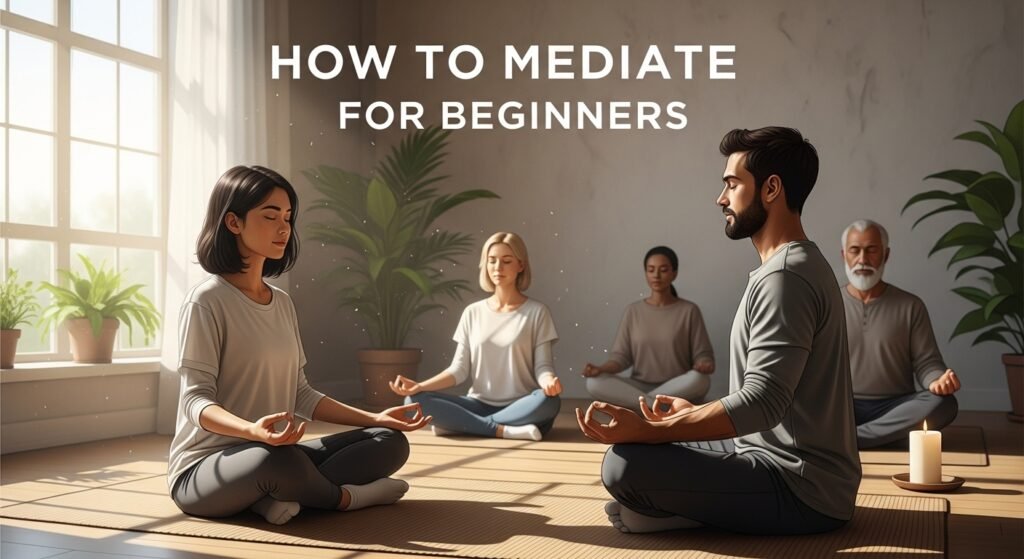
Starting meditation may seem intimidating, but it’s simpler than you think. Follow these steps to get started:
Find a Comfortable Space
Choose a quiet, comfortable location where you won’t be disturbed. It doesn’t have to be fancy—a spot on your couch or a corner of your bedroom will do. Ensure you can sit or lie down comfortably.
Get in a Comfortable Position

You can sit cross-legged on the floor, on a chair with your feet flat on the ground, or even lie down. The goal is to be comfortable but not so relaxed that you fall asleep. Keep your back straight to prevent slouching.
Close Your Eyes or Focus on a Fixed Point
Shutting your eyes can help you tune out distractions, but if it feels uncomfortable, focus on a single point in the room. This could be a candle flame, a single object, or even a blank space.
Focus on Your Breath
Begin by noticing your breath. Pay attention to how it feels as you inhale and exhale. Breathe naturally and don’t try to force anything. Your breath is your anchor, guiding you back if your mind starts to wander.
Observe Your Thoughts

It’s natural for thoughts to pop into your mind during meditation. Instead of judging or fighting them, simply notice them and gently guide your attention back to your breath.
Start Small
For beginners, even a few minutes of meditation can feel like an eternity. Start with two to five minutes and increase the duration gradually as you get more comfortable with the practice.
Meditation Techniques for Beginners
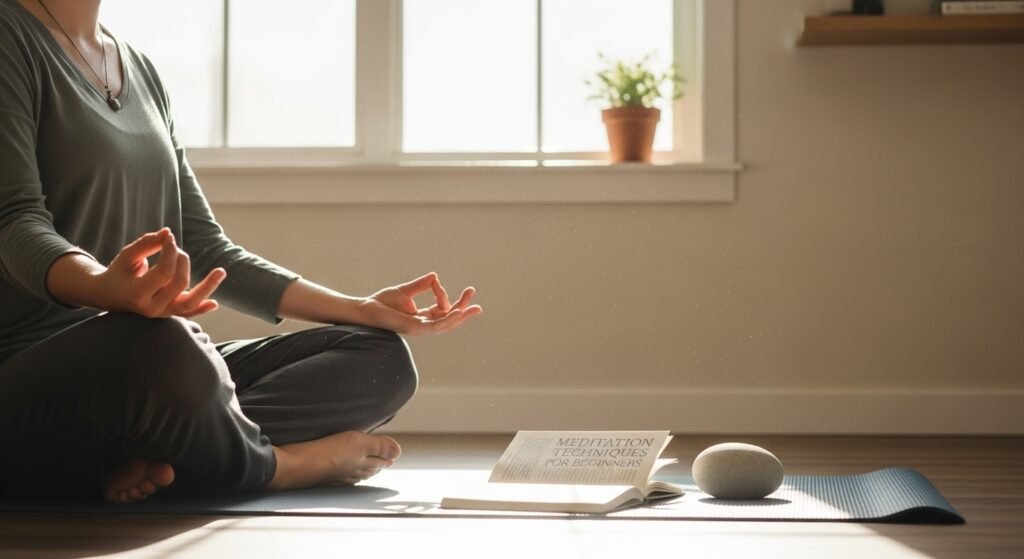
Different types of meditation cater to different needs. Try these beginner-friendly techniques to see what works best for you:
Mindfulness Meditation
This involves observing your thoughts and surroundings without judgment. It teaches you to stay present and can be practiced anywhere, even while walking or eating.
Focused Attention Meditation
This method involves concentrating on a single point, such as your breath or a word. If your mind wanders, gently bring your focus back to the chosen point.
Loving-Kindness Meditation
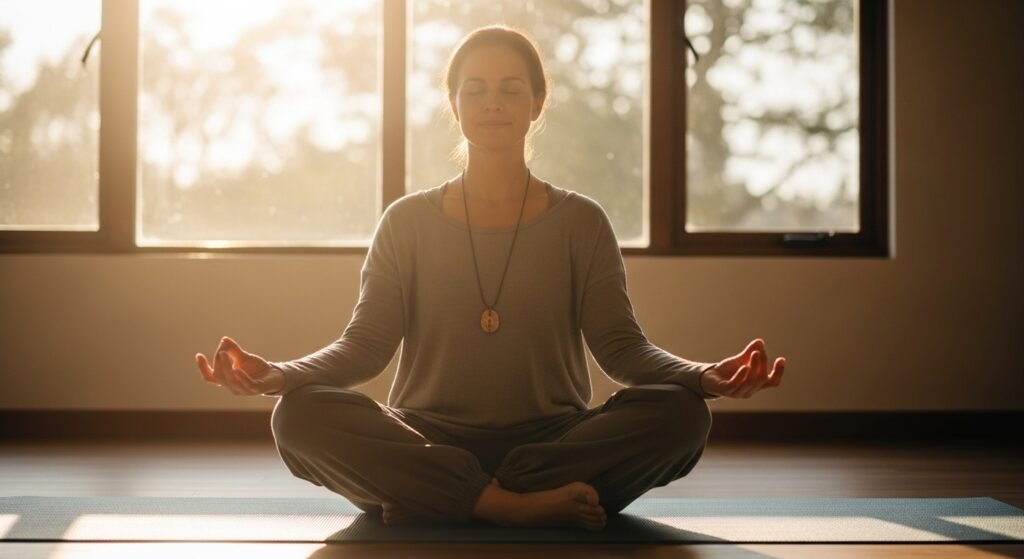
Also known as “metta,” this practice involves thinking kind and compassionate thoughts about yourself and others. It can help cultivate empathy and positive emotions.
Visualization Meditation
With this technique, you imagine a peaceful scene or a positive outcome. Visualization can be calming and boost motivation.
Body Scan Meditation
This method helps you connect with your physical state by systematically focusing on different body parts. It’s great for relieving tension and grounding yourself.
Meditation Tips for Beginners
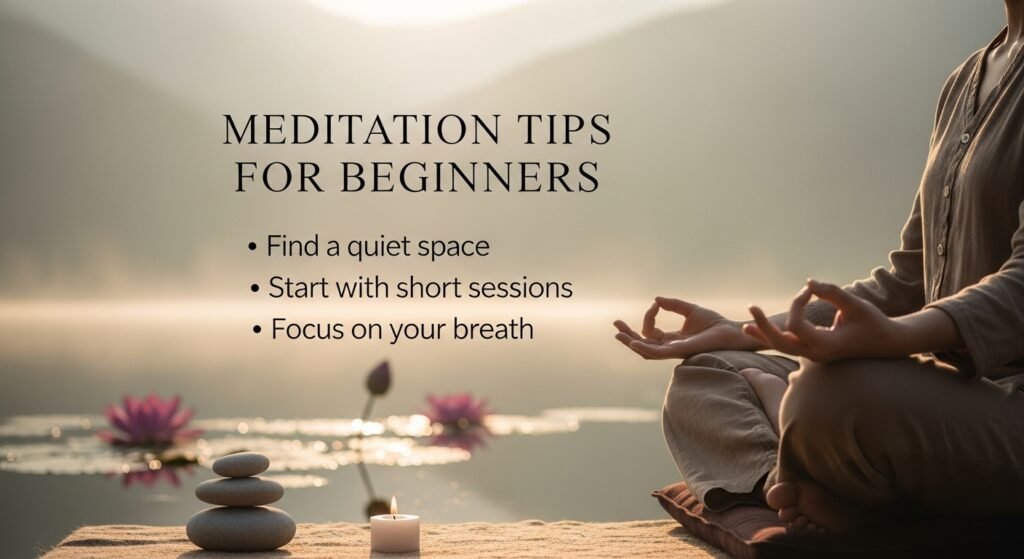
To make your meditation practice effective and enjoyable, keep these tips in mind:
Be Patient with Yourself
Meditation is a skill, and like any skill, it takes time to develop. Don’t worry if your mind wanders—it’s part of the process. Be kind to yourself and trust that improvement will come with consistency.
Set Realistic Expectations
Don’t expect immediate results. Meditation works gradually, and the benefits accumulate over time. The key is to commit regularly, even if it’s just a few minutes each day.
Practice Consistently
Consistency is more important than duration. Meditating for five minutes daily is better than one long session every week. Find a time of day that works for you and stick to it.
Use Guided Meditations
If sitting in silence feels overwhelming, try a guided meditation. These are available through apps, websites, or videos and can provide clear instructions to follow.
Create a Ritual
Building a meditation ritual can help you stick with it. Light a candle, sip tea, or listen to calming music before you begin. Rituals create a sense of intention and make the practice more rewarding.
Don’t Overthink It
Meditation doesn’t need to be perfect. There’s no right or wrong way to do it, as long as you’re showing up and giving it your best effort.
The Impact of Regular Meditation

Many beginners are surprised by how much meditation changes their lives over time. Through regular practice, you may notice the following transformations:
- Improved focus at work or school
- Enhanced relationships, thanks to greater emotional awareness
- Better sleep, due to reduced stress and relaxation
- Heightened creativity, as your mind becomes clearer
- Greater self-acceptance, through self-awareness
You may also find that meditation becomes something you look forward to—a time to unplug and recharge.
Why You’ll Never Give It Up
Meditation is more than a practice; it’s a lifestyle shift. Once you begin experiencing its benefits, it’s hard to imagine life without it. Many people say meditation feels like a lifeline—a way to find peace and balance no matter what life throws their way. Beginners often discover that they’re not just meditating for the immediate calm, but for the long-term rewards that ripple into every aspect of their lives.
By starting small and staying consistent, you can transform yourself through meditation. Whether you want to reduce stress, improve focus, or simply create moments of stillness, meditation offers a path worth exploring. And before you know it, you’ll see why giving it up isn’t an option.
